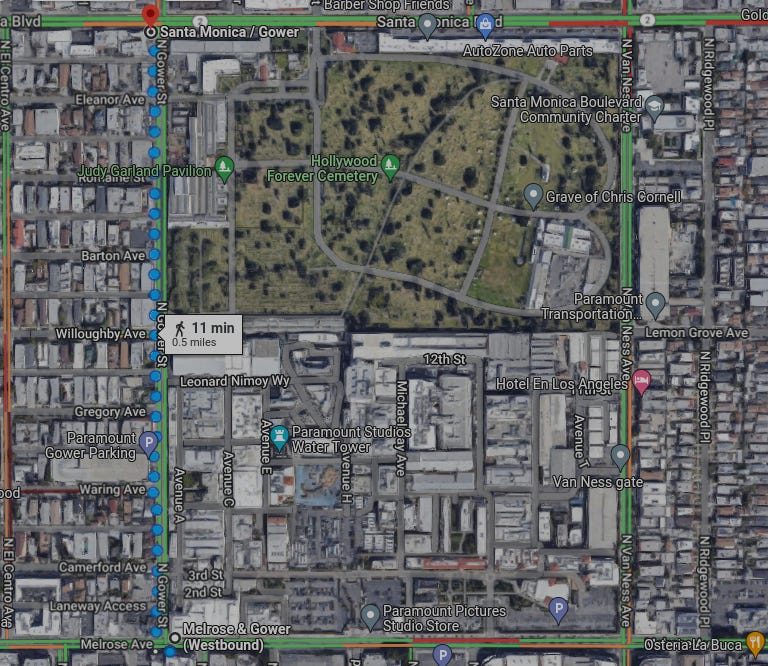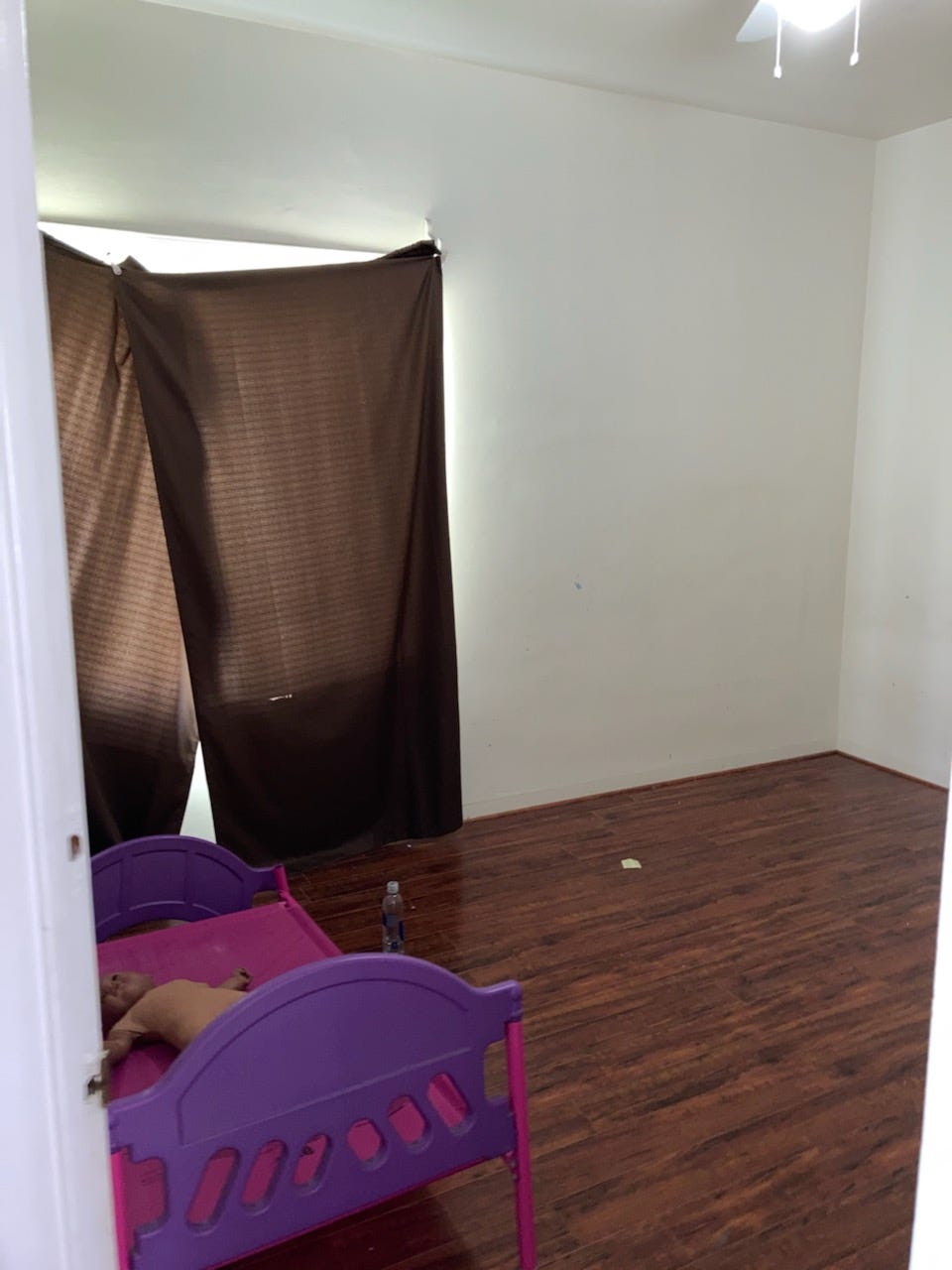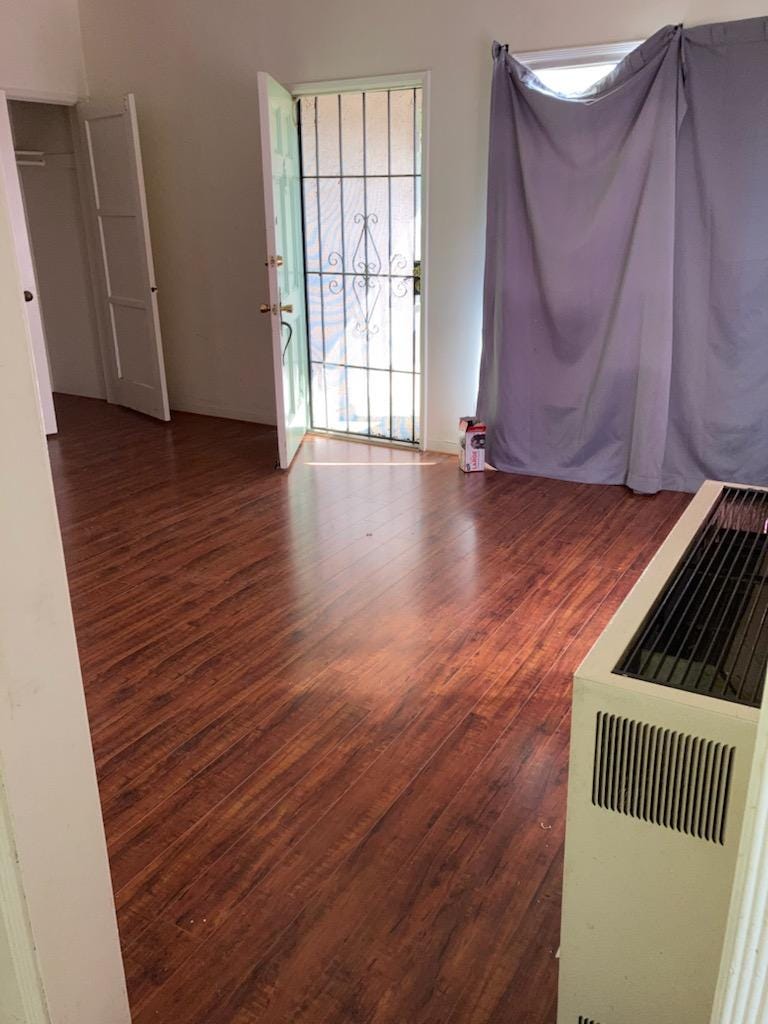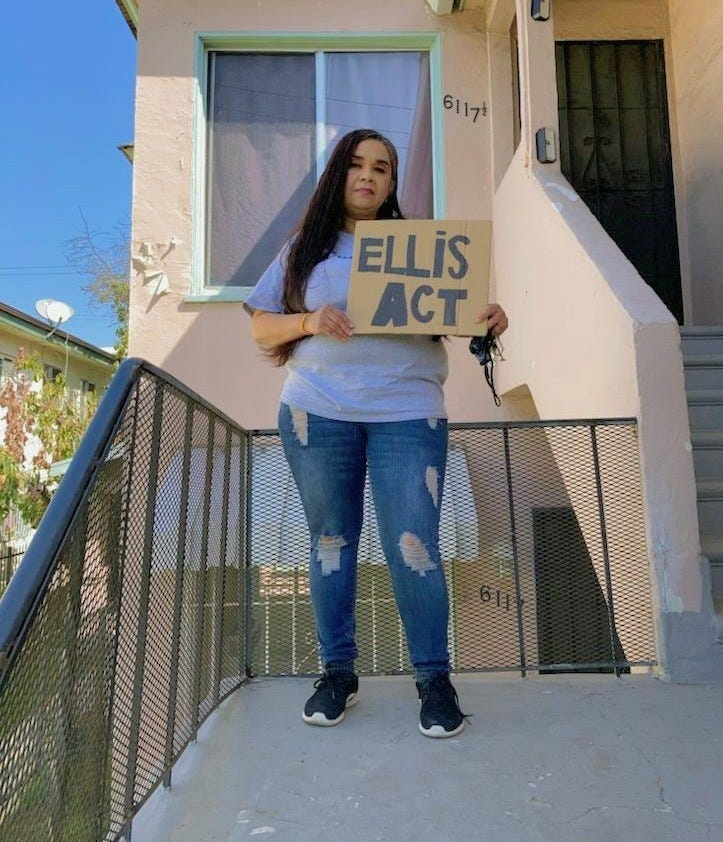Eviction of L.A. Renters returns this February
How the life of one woman from Hollywood changed after being evicted through the Ellis Act in 2021
Since 2001, along the 2.4 square mile radius making up East Hollywood, Ellis Act evictions have disappeared nearly 500 separate households that once served as rent-controlled (RSO) units, or apartments with a cap on the amount of rent charged for them. The Ellis Act, passed in California in 1985, grants landlords the right to evict tenants, including those living in RSO units, to sell off the building, convert it into a condominium, or simply let it sit vacantly for a minimum of five years.
East Hollywood’s historically working-class Latino and Asian-American neighborhoods have thus been increasingly remade through Ellis Act evictions and market-rate housing instead of desperately needed extremely low-income housing. To consider the impacts of such laws on working-class residents in the area, I spoke with Elvira R., who was recently removed by the Ellis Act from her home in Hollywood, where she had resided for over 20 years. The questions and answers from our conversation are presented below and edited for length and clarity.
When did the eviction from your home take place?
My eviction date to vacate the apartment was for January 8th, 2021 per the eviction rental withdrawal process initiated by my landlord on January 8th, 2020. Initially, my household didn’t qualify for more than 120 days as required by the Ellis Act to vacate, but we permanently left the apartment past our due date given the COVID-19 Eviction Moratorium protections passed by the City of Los Angeles during the state of emergency. My household's pandemic-related financial hardships qualified me for the extended eviction process. I paid my rent through April 2021, and I could have remained housed in that Hollywood apartment until protections were lifted recently, but the other tenants had left and the empty building became dangerous. My family’s last four months alone there were constant encounters with trespassers attempting to occupy vacant units.
In total, how many of your family members were affected after this eviction took place?
My son and I were displaced. The eviction also affected my grand-children's babysitting arrangements, for whom I was and continue to be a babysitter. The move also changed one of my grandchildren's school arrangements.

Did you grow up in the Hollywood area?
I was born and raised in the Hollywood area my entire life and had lived at five different addresses from Gower St and Santa Monica Blvd to Gower St and Melrose Ave. My entire world consisted of living around this neighborhood, tucked behind Paramount Studios and the Hollywood Forever Cemetery. I went to local schools in Hollywood, at Vine St. Elementary, and at local Bancroft Jr High. I also completed my G.E.D, CNA, and LVN vocational training and licensing through Los Angeles Job Corp downtown L.A. in 1997.

Did the city support your relocation process at all?
My Ellis eviction case was assigned to a third-party company contracted through LAHD (L.A. Housing Department) named Property Specialists, Inc. DBA (CPSI). They were supposed to help with relocation and also decide the amount of money the landlord had to give tenants to relocate. But the documentation I needed to submit to CPSI for the relocation money was extensive and time-consuming. They asked for my original lease, rent-payment stubs proving tenancy for three years, rent-increase documents, and a California ID or Driver's License proving residency at the pertaining address for over three years, and more.
As for actually finding a new place, I eventually found my current address through my own research. I called different listings for months for low-income housing in Los Angeles, but most had a waiting list of at least five years or they were reserved for Seniors. I found no low-income housing in the Hollywood area. Honestly, I think the algorithms on Craigslist.com were more in my favor than LAHD or CPSI were. In December 2020 I was alerted to a listing on Craigslist about an online rental lottery for a new low-income building in Sun Valley. I applied at 2:00 AM on the day it opened online applications. It took me two hours to finish the application and I had to go in to work at 7:00 am as the opening cashier at Dollar Tree that same morning. I never thought I was going to hear back from them but I did. I then also received another listing from a CPSI agent via email, but it wasn’t within my income bracket and pretty much seemed compiled off of Apartments.com or Craigslist. I did better on my own when it came to relocating me and my family.

You mentioned that you also lost your job less than a year after you were given this eviction notice. Can you say more?
I started working for Dollar Tree in Hollywood in June 2015. My last day of work there was in December 2020 due to a permanent closure of the store. I was the last employee left from the store’s opening day since our team was ultimately overwhelmed by deteriorating conditions there due to a growing number of encampments of unhoused people in Hollywood. I stayed out of necessity and because through that job I saw my community like I never had before. I saw elderly people become daily customers just to have a conversation with a familiar face; homeless customers making purchases to eat and weather the elements; Spanish-speaking moms buying last-minute school supplies for their children and asking me for advice since I was bilingual.
Have you been able to find a new job since your time at Dollar Tree?
In early 2021, after just arriving to Sun Valley, I put off looking for work to provide care-giving for my grandchildren as we adjusted to a new home and surroundings. Nearly two years later, I’ve been unsuccessful with finding a new job. My hours of availability are limited due to the unreliability of the local bus routes and because I don’t want to stand at a bus stop too early in the morning or too late at night. The closest bus stops are not well-lit and are a seven minute walk both ways.
I also feel a bit intimidated by the new neighborhood, which doesn’t feel like the safest. While Hollywood did have a recent spike in crime, the familiarity of my surroundings gave me this sense of security since I constantly ran into familiar faces while walking to work or running errands. The abundance of bus routes in Hollywood also provided a lot of comfort. I’ll continue to look for a new job this next year, though with a mid-day option since I’m still needed at home for my grandchildren’s care-giving and also because of my safety concerns in a new neighborhood for me and my family.
Since you don’t own a car, how are you getting around to purchase groceries and other items in Sun Valley?
In the first couple of months after I got here I had three different Metro bus lines running down the nearest major street to the apartment building. To buy groceries I took any of those buses to the closest supermarket, which is a mile away. It wasn’t easy to get my groceries this way because sometimes on my trip back from the market the bus was too full and the driver would skip my stop. This was extremely frustrating with heavy groceries in hand, to say the least. In Hollywood, I was used to having supermarkets less than five blocks from my home, including a convenient Latino tiendita a block away. Purchasing items at El Rancho Market in Hollywood was also a part of my daily routine.
Recent changes to Metro’s bus routes in the valley cut out some stops and made it even harder. The bus that is still connected passes in intervals of 30 to 40 minutes or more, which is a long wait, and I now have to depend on my son's availability to take me to the market. It’s been a hard adjustment to lose the independence to run my own errands. I may just have to give in to online grocery shopping between trips to the store. Convenience and necessity might win, which is not exactly how I was taught and brought up to buy my food. My old way was to see for myself what my local tiendita had on sale, or what was freshest. If the Carnicero had just grounded beef, Albondiga soup was most likely the meal for the evening. I never realized until recently how easy it was for me to mimic my Mom's style of cooking just by having all the ingredients I grew up watching her use so readily available to me.

You also mentioned that your former apartment complex was recently destroyed after a fire there last year.* How did that affect your view of the changes still taking place in your community through housing?
Seeing the breaking news about the fire, I feared for family and life-long friends in my old neighborhood, and I couldn’t help but feel it wouldn’t have to be that way if it wasn’t for The City’s negligence on housing. I also think it was logical that an old and deteriorating building like the one I lived in had to be replaced by something new. But I still resent how people displaced from RSO units often never bounce back to decent housing for so many reasons beyond their control.
I also struggled to comprehend how the previous L.A. City CouncilMember, Mitch O'Farrell, claimed to have erected 4,000 units of affordable housing in Council District 13 at the same time that I was being evicted. In the future, maybe allowing people like my family and I to have priority for new listings in the very district we’re forced out of should be considered. It would definitely make the transition less traumatic and life-changing for the entire household. If even some of us displaced from rent-controlled units in Hollywood could have found a new home in District 13, it probably wouldn’t feel like an obvious [racial remaking] of the area.
*Elvira also states that the fire which destroyed her former apartment building was likely started by squatters occupying it after she and other former tenants left, though this couldn’t be independently verified.*


What might your story say to others when it comes to eviction and the city’s limited support for families like yours?
When my neighbors and I realized that resources to fight against the Ellis eviction were limited, we took matters into our own hands. The fight for extra time for all of us, including neighbors who didn’t qualify for an extension of eviction, began when we decided as a unit to go after it. It was only possible through pressure applied to the landlord and LAHD in unity, and by communicating to each other every step of the way. I wrote up letters for my household, and my brother, who was another tenant nearby, did the same for other neighbors. I sent emails to the landlord and then mailed him via certified mail.
I also want my cuento to encourage people not to be afraid of questioning government offices because they’re experiencing financial hardship, or because they don’t speak English or are handed official-looking paperwork that seems overwhelming. You can find help or learn to understand your rights. Low-income families should also know that securing relocation money is not enough. Securing your future housing, accessibility to your job, and transfers for your children’s schools before leaving are more important. During buy-outs, the money to relocate might seem appealing at first, but in a city with unaffordable rents, it runs out quickly. And even though with an Ellis Act eviction the displacement might be inevitable, there are still gains you can make when you come together with your neighbors.
—
This February, after nearly three years of COVID-19 emergency restrictions on eviction of renters, which Elvira referred to in this interview, landlords will once again be allowed to evict tenants who are behind on rent payments. This is due to a unanimous vote taken by the L.A. City Council a single month before November 2022’s elections.
J.T.




